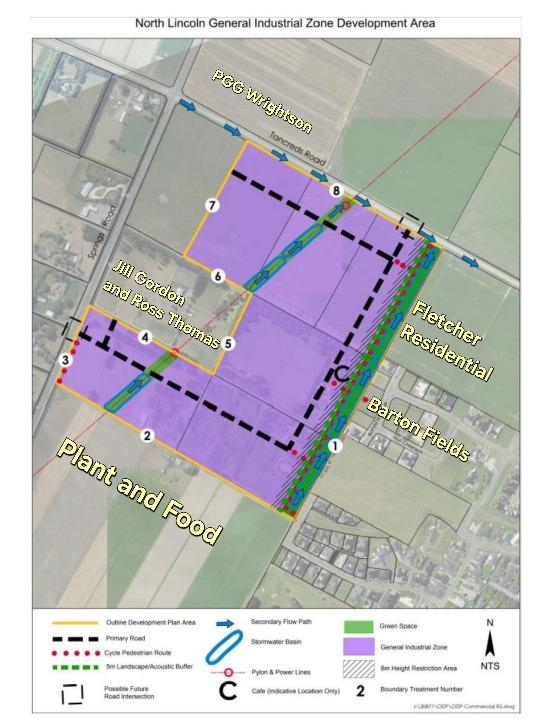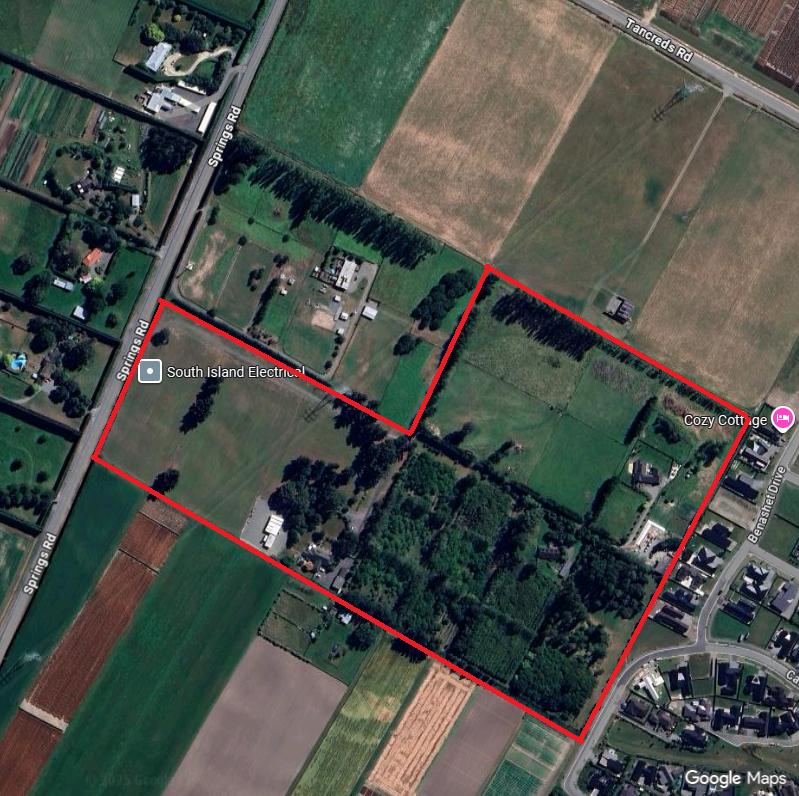

They argued there was a shortfall of industrial land in Lincoln, which currently has none zoned for that use.
If successful, the 15.45ha site would have housed businesses such as vehicle servicing, garden supplies, and trade supplies.
After failing to get the Selwyn District Council to approve the change as part of the District Plan review in 2023, the Townsends and Stewarts appealed to the Environment Court. That appeal has also now been dismissed.
Townsend said he has no plans to take the matter further.
While the Frasers’ land was included in the proposal, they were not a party to the appeal.
Alongside the council, the main opponents were the Townsends’ and Stewarts’ neighbours, Jill Gordon and Ross Thomas.
The park would have bordered their property on two sides and caused a rift between the parties.
Gordon did not respond to calls from Selwyn Times about the decision.
Gordon previously told Selwyn Times she was “gobsmacked” to find the proposal, which initially would have seen their property rezoned as well.
“I know people can do it legally, but actually, I find it morally repugnant that people can actually do that and not pick up the phone,” Gordon said in 2023.
Townsend told the Selwyn Times at the time he had no obligation to inform Gordon and Thomas.

Townsend declined to comment on what the relationship is like now with Gordon and Thomas.
Also opposing the appeal were Barton Fields resident Jason Scott, PGG Wrightson Seeds, Fletcher Residential, and the Bioeconomy Science Institute.
Only the council and Gordon took part in the week-long Environment Court hearing in July.
One of the key issues in dispute was whether Lincoln needed industrial-zoned land.The Townsends and Stewarts argued it did.
“As a sub-district centre, the appellants consider that Lincoln is expected to be self-sustainable, functioning independently with a range of residential, commercial, and industrial activities while providing support to Rolleston, smaller townships, and the surrounding rural area,” Environment Court Judge Prudence Steven said in her decision.
The council countered that there was no need for industrial-zoned land in Lincoln because of its proximity to Rolleston.
“The council further considered that the types of industrial activities proposed for the site are accommodated in existing zones in and around Selwyn District, including, but not limited to, within the existing GIZ (general industrial zone) at Rolleston, that being the appropriate location for general industrial activities,” Steven said.
In its closing submission, the council warned there would be “unintended outcomes” if the rezoning was approved.
“Acceptance of the appellants’ approach would mean that for every urban environment within each of the constituent districts within Greater Christchurch, provision would have to be made for townships qualifying as an urban environment in terms of population number for a supply of local industrial land as distinct from general industrial land,” Steven said in her summary.
The judge relied on a business development capacity assessment prepared in 2023.
It found there was 333ha of available industrial land in the short term, 246ha in the medium term, and 78ha in the long term.
Where the bid ultimately failed was that the site was on highly productive land, which is protected under the National Policy Statement for Highly Productive Land (NPS-HPL).
To rezone such land, a shortfall in suitable land must be demonstrated – which was not the case here.
“This aspect of the appellants’ case is fatal,” Steven said.
“We are bound by the NPS-HPL policy five directive that 'the urban rezoning of highly productive land is avoided,’ there being no other pathway through the NPS-HPL.”
Townsend said he was disappointed but not surprised the appeal was rejected.
“I only hope the incoming council will have a wider view of life and not be so obsessed that everything goes to Rolleston.”
He would not say how much had been spent on the appeal process.
“I’m not going to have that bandied all around the town, but just two words – too much,” Townsend said.
The council spent $280,854.55 defending the appeal, which it is legally required to do.
The use of highly productive land was also going to be one of the arguments raised by community advocacy group Lincoln Voice against the 2100-home Earlsbrook subdivision (formerly Lincoln South).
However, Lincoln Voice never got to present its case in the Environment Court after its appeal was made null and void when the council adopted the District Plan, which included Earlsbrook.












